Ahead of the general election, Labour leader Keir Starmer has vowed to “fix broken Britain” and when it comes to UK tourism, he needs to be sharp on the issue.
According to the latest statistics from the United Nations World Tourism Organisation (UNWTO), visitor numbers to the UK in 2023 are still 5.6% down on 2019, putting the country towards the bottom of the European table, behind France, Spain, Turkey, Greece, the Netherlands and Croatia, but better than Italy and Germany.
Other sources confirm the slow return to form. VisitBritain uses the ONS’s International Passenger Survey, which projects 37.96 million incoming visits to the UK in 2023, a 7.1% decrease on 2019. In cash, they spent £31.1 billion, a 10% decrease on 2019 when inflation is taken into account.
In addition, the number of visitor visas issued in 2023 was 1 million 956 thousand 526. This number is 40 percent more than in 2022, but 19 percent less than before the pandemic.

So why is there such a slow increase and why are other countries doing better?
Some of the underlying factors in the decline in tourism are clearly related to the cost of living crisis, which is by no means an internal issue. Britain is not a budget holiday option.
The World Economic Forum ranked the UK 113th out of 119 countries for the price competitiveness of travel and tourism. Food and transport in particular are expensive and this will inevitably deter some people who might otherwise come.
For those who watch the news, Britain has not had the best of publicity campaigns. Raw sewage by the sea, rising knife crime, chaos on the railways and even the axeing of HS2 are not very appealing images.
Joss Croft, chief executive of UKInbound, which represents more than 450 firms that host, transport, guide and feed international visitors, said a large-scale survey of summer 2024 bookings was “very strong”, with 85 per cent of members saying they were the same or better than 2023.
“However, confidence for the next 12 months has fallen significantly since April,” he adds. “All tourism is based on three elements: vehicles, money and motivation. For vehicles, the UK is insisting on passports for EU travellers – this particularly affects the youth and student travel sector. Visa costs are high and getting higher, and we are introducing ETAs [electronic travel authorisations] later this year.
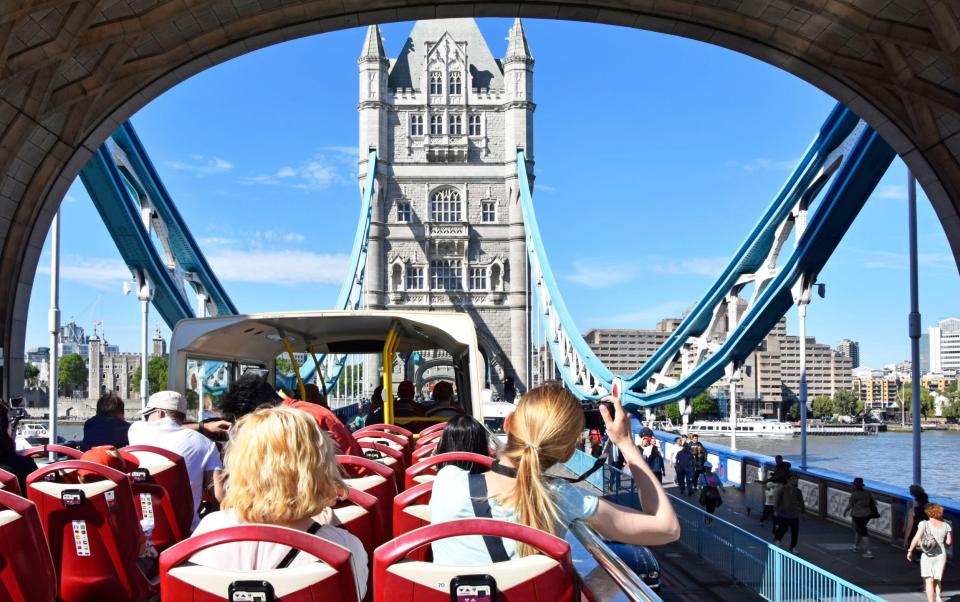

“Our reputation for welcoming is poor and the UK is currently poor given that the two biggest motivations for international travel are ‘will I be welcomed’ and ‘will I get value for money’. VAT on hospitality is higher than almost anywhere else in Europe and the UK has also made rivals better value for money by abolishing tax-free shopping. Visitors are coming but they are spending less time and less money here.”
In Anholt-Ipsos’ latest report on National Brands, the UK’s ‘Welcome’ ranking fell to 19th out of 60 countries – the lowest ever for this metric.
In this context, “Welcome” refers to factors such as “Positive interaction with locals”, “Helpful hotel staff”, “Friendly service in restaurants”, “Stress-free airport experience”, “Easy transportation” and “Smiling faces”.
Oxford Economics predicts that the UK’s international tourism reputation will suffer further, not just globally (with the Middle East being the fastest growing region) but also in comparison with its main rivals in Western Europe.
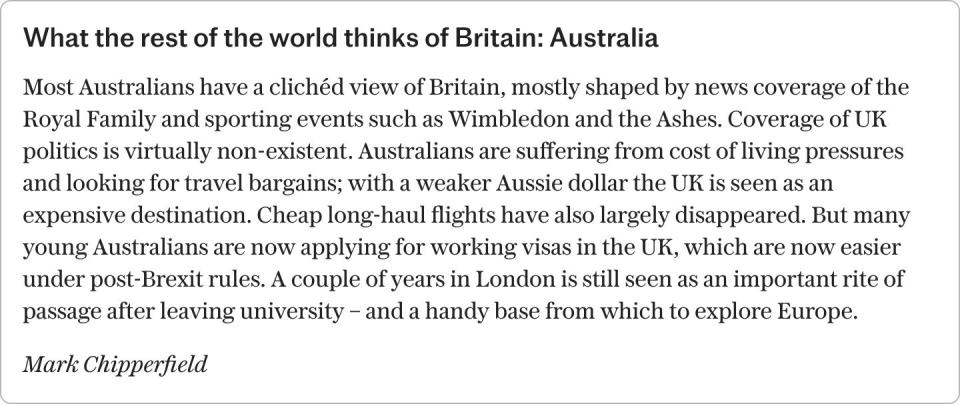

Patricia Yates, VisitBritain’s chief executive, recognises the challenges. “Tourism is a competitive global industry and visitors have a wealth of choice,” she says. “Britain consistently ranks highly for its history, heritage, contemporary culture and sport, but perceptions are less strong when it comes to its natural beauty and perceived welcome.
“The latter is the most important factor in destination choice. To counter this, VisitBritain’s international GREAT campaigns showcase our welcome by inspiring visitors to explore more of Britain, stay longer and create that sense of urgency to come now.


“On policy issues, EU travellers used to be able to travel to the UK using just their ID card but now they need to use a passport, which not all EU visitors have. And we will soon see the introduction of the Electronic Travel Authorisation scheme.
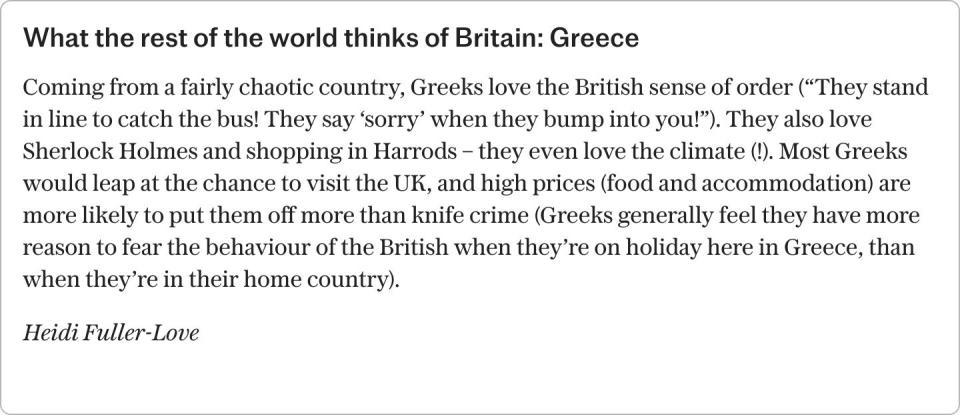

“We are working with the Home Office to ensure the app is well communicated. We are also working with our partners in our overseas markets to ensure they have the latest details and provide visitors with the clarity they need to plan and book their visits with confidence.”
There is no doubt that UK tourism is recovering – but the pace is slower than the industry had hoped. Visitor numbers are falling short of the government’s targets set out in the 2021 Tourism Recovery Plan and are slower than in other parts of the world, including Europe.
The government’s target was to increase the number of cases to 2019 figures by the end of 2023, but all data suggests the UK will not meet that target by the end of 2024.


Richard Toomer, executive director of the Tourism Alliance, an umbrella organization of more than 70 associations and organizations, says the government’s goal is right but policies are getting in the way.
“One of the absolute highlights was the decision to scrap tax-free shopping for international visitors. We are the only major European destination that no longer offers this service, and it is a significant driver for many long-haul visitors,” he says.
“Our retail, hospitality and tourism businesses are really feeling the impact. Many tourists are now shifting their visits and spending to Paris or Milan, or are cutting their UK trips short and saving their spending until they get to Europe. Bringing this back and extending it to EU citizens would be worth £10 billion a year and increase tax revenue by £4 billion a year.
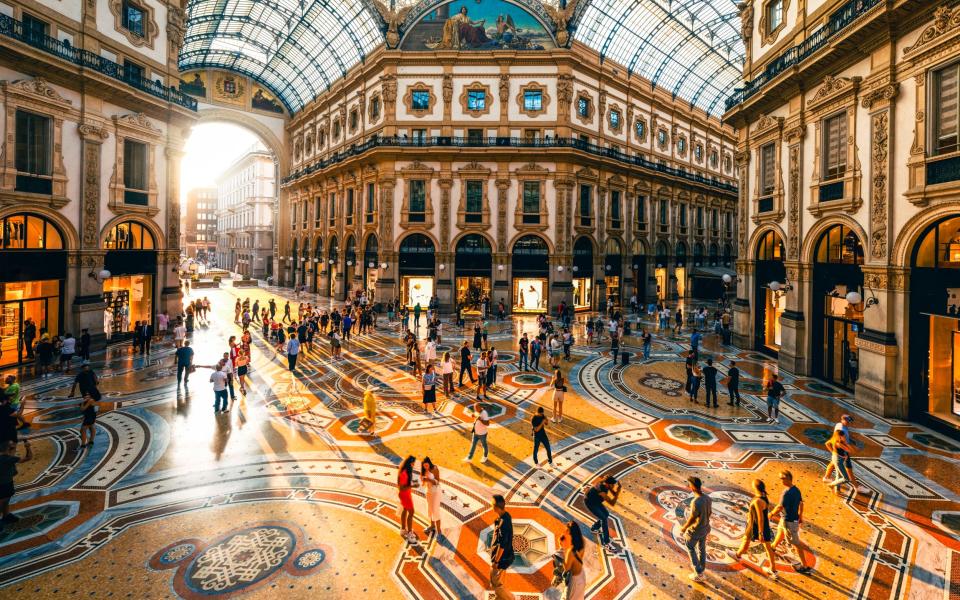

“Our visa regime is not very competitive and instead of dealing with this the previous Government increased visa fees even further. A two-year visitor visa is now £432 and a five-year visa is £771. A Schengen visa costs €90 and of course allows tourists to visit multiple countries on a single visa. Our application process is also cumbersome and time-consuming.”
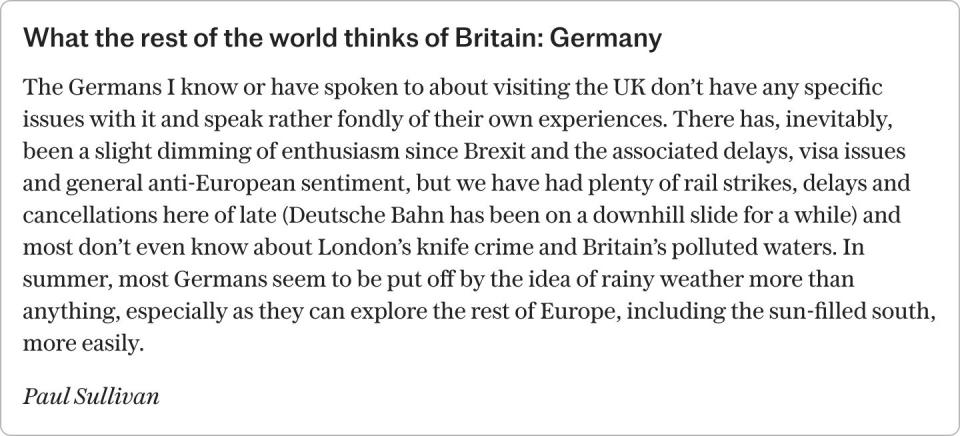

Travelling in both directions between the EU and the UK is set to become increasingly bureaucratic and costly. Both the UK and the EU are implementing new border regimes to tighten security, but this will have an impact on travellers.
For nationals arriving without a visa, they will need to apply for an ETA before travelling at a cost of £10 per person, including those only transiting at a UK airport. This will be another cost and barrier for people choosing to come to the UK.
Toomer says the new Government has an opportunity to rebuild: “We call on the Government to work with the sector on a new Sustainable Tourism Growth Plan that is ambitious in its goals and supports those goals with good policy making.
“The Labour Government has also pledged to reset the relationship with the EU and we want to transform that relationship into an EU-UK Mobility Deal that does not reopen Brexit debate but makes travel and trade between the two jurisdictions easier for both leisure and business travellers.”
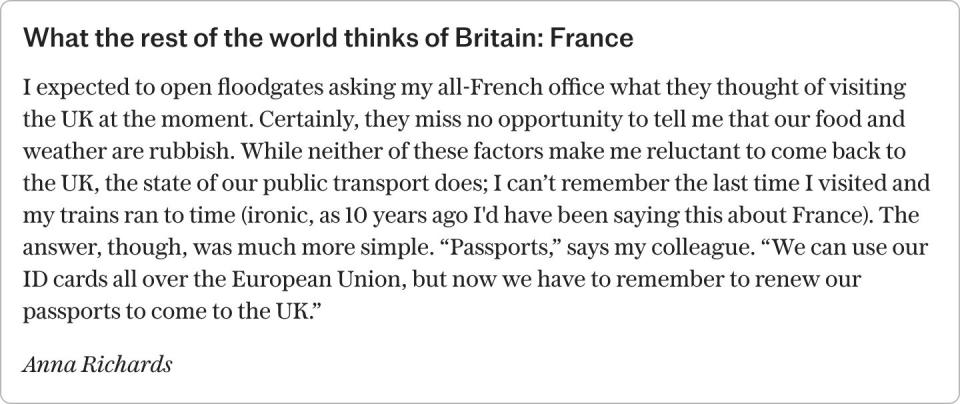

VisitBritain’s marketing budget is around £18m per year, compared to over €80m (£67m) for Ireland, despite the government’s own figures showing that tourism generates an impressive £21 in additional spend for every £1 invested. If just £1 was allocated from each ETA, VisitBritain could generate significant returns for the UK economy.
The biggest challenge the government will face may be one of style.
It is all very well to use recent history and the “broken Britain” narrative to support new policies – but it may be best to keep it under wraps so that potential foreign visitors are not left scurrying around the world in search of a more attractive holiday destination.